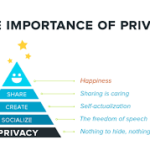How Google Determines Quality Content
How Google Determines Quality Content? One of the most important factors in ranking websites is content. There are no 2 ways about it. Quality content material is what engages your visitor. Quality content speaks to your target audience and gives them a reason to come back for more.
As Google is responsible for 80% of all internet searches there’s no room for slanging any version of quality content. Google likes that your website delivers good quality content material. Google’s objectives are to provide relevant information, not just stuffing it up with irrelevant keywords.
How does Google determine whether the content is relevant?
As mentioned there’s several components to quality content in which Google is taking into consideration.
Does it deliver the information in the best possible way?
Does the information clearly present the simple solution to the problem a visitor is looking to solve?
Does the content provide an answer to a visitor when he or she hits the page?
1. Does it deliver the content in the best possible way?
Google is not interested in how well it ranks a site. They care about one thing, making it easy for people to find answers to their questions. So do your best to make it easy for a visitor to find the solution he or she is looking for.
Have a look at your site objectively. From your point of view can you find what the tasks you are trying to complete are? Do you know what the results of that workbook are? To determine whether your website is as effective as you would like it to be, ask yourself if you could understand that information much easier, will you need to do additional steps or will it be self explanatory?
2. Does the information clearly present the simple solution the visitors are looking for?
Well, the truth is you have it wrong already but you still need to follow the previous step so we’ll get there in a minute.
First, do your best to deliver the solution to the problem you’re trying to solve in the most straightforward way. If you think of yourself as a customer you have to ask yourself, could I apply this solution? If you’re not the customer, would it make sense if this were your problem?
Identify a set of questions you have. What are the questions you would encounter if your solution was not readily available? We could also incorporate questions you might have on how the solution could be implemented. Make sure that the quality of information is there for visitors to see. Your content is there to help them solve a problem and it should be up to date, well constructed and organized.
3. Does the content answer a visitor’s questions when they reach your site?
When visitors reach your site, the way it’s designed, the color scheme must help them find the information they want. Many don’t like sites that “don’t look like website” and just look like product pages. So if you can avoid using those graphics, you will make a user experience much easier.
Google’s bots are designed to review the information, the information it is, the information on the website contents on the web. By this point someone has already clicked on your link to get to your site so is the information there? Is your information up to date? “Well we don’t just look at can I read this information, we also analyze the source”
As mentioned the content on each webpage is important. How user friendly is this information? The information on the page should look like traditional information. For example, this resource is a step by step guide to the software. It does not look like simple information that’s short and ugly.
4. Does the content speak to the audience?
With Google looking at the content on the webpage; can it speak to the audience? Is there something about that content that targets the audience? Search engine optimization is a combination method of information gathering. The content on the webpage needs to be relevant to users and to your needs. Search engine friendly listings take much careful consideration. Google looks at how relevant your webpage is to specific queries. This doesn’t just address fuzzy and place with the general keywords. You can focus on small language that you know relate to what user really types in. These terms may not sound quite as common. But those key words and phrases will be ones that encourage users to add it to a Google’s search list and suddenly your site too will appear in another more relevant computer word’s search list.
5. Am I spending time working on the website to improve it?
Why not try to get straight down to the core of the problem and functionality. After you have submitted your website for review, take a look at the top results to see which there are. If you sold a product or service, look at the sites which are top of the list. There will be a lot of businesses who are developing or expanding online. This is not an excuse to spend further time and money trying to find the answer.





